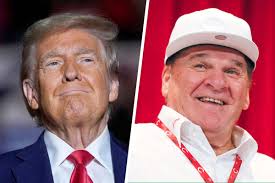
Breaking News
 Dubai: cryptocurrency payments for government services thanks to Crypto.com
Dubai: cryptocurrency payments for government services thanks to Crypto.com
 Shocking UFO files hidden in presidential library claim US made successful contact with an alien...
Shocking UFO files hidden in presidential library claim US made successful contact with an alien...
 Southern state residents 'desperate to escape' but homes won't sell as crash looms
Southern state residents 'desperate to escape' but homes won't sell as crash looms
 Trump blasts hysteria over Qatar's $400M gift: 'We're the USA'
Trump blasts hysteria over Qatar's $400M gift: 'We're the USA'
Top Tech News
 Cab-less truck glider leaps autonomously between road and rail
Cab-less truck glider leaps autonomously between road and rail
 Can Tesla DOJO Chips Pass Nvidia GPUs?
Can Tesla DOJO Chips Pass Nvidia GPUs?
 Iron-fortified lumber could be a greener alternative to steel beams
Iron-fortified lumber could be a greener alternative to steel beams
 One man, 856 venom hits, and the path to a universal snakebite cure
One man, 856 venom hits, and the path to a universal snakebite cure
 Dr. McCullough reveals cancer-fighting drug Big Pharma hopes you never hear about…
Dr. McCullough reveals cancer-fighting drug Big Pharma hopes you never hear about…
 EXCLUSIVE: Raytheon Whistleblower Who Exposed The Neutrino Earthquake Weapon In Antarctica...
EXCLUSIVE: Raytheon Whistleblower Who Exposed The Neutrino Earthquake Weapon In Antarctica...
 Doctors Say Injecting Gold Into Eyeballs Could Restore Lost Vision
Doctors Say Injecting Gold Into Eyeballs Could Restore Lost Vision
 Dark Matter: An 86-lb, 800-hp EV motor by Koenigsegg
Dark Matter: An 86-lb, 800-hp EV motor by Koenigsegg
 Spacetop puts a massive multi-window workspace in front of your eyes
Spacetop puts a massive multi-window workspace in front of your eyes
Free Pete Rose

Bad things usually happen when politicians stick their noses into the business of baseball.
George W. Bush's antipathy to steroid-?inflated sluggers gave us congressional show trials and invasive drug-testing legislation for high school athletes. Joe Biden's hyperbolic shaming of Georgia's mild election reform of 2021 needlessly pressured the MLB to move its annual All-Star Game out of Atlanta. Generations of political ribbon--cutters have squandered billions of taxpayer dollars on private owners' stadium facilities.
But when President Donald Trump in late February announced that "over the next few weeks I will be signing a complete PARDON" of the late all-time hits leader Pete Rose—who served a five-month prison sentence for tax fraud in 1990 and more famously was given a lifetime MLB ban in 1989 for committing the unforgivable sin of betting on baseball—it may have been that rare political meddle that could produce a positive outcome.
Rose, a.k.a. Charlie Hustle (the nickname was an insult he happily embraced), was a competitive monster over his long career (1963–1986), mostly with the Cincinnati Reds, overcoming an unimpressive athletic toolkit through sheer force of will. "I'd walk through hell in a gasoline suit to play baseball" was his mantra.
As with NBA all-timer Michael Jordan, Rose's monomaniacal zeal to win transposed naturally into gambling; unlike Jordan, Rose's chosen sport instituted a zero-tolerance taboo against once-pervasive gambling back in 1920, when the moralistic?commissioner, Judge Kenesaw Mountain Landis, banned for life eight players from the pennant-winning Chicago White Sox who had accepted money to lose the 1919 World Series. Among their ranks was the supremely gifted outfielder "Shoeless Joe" Jackson, whose controversial ban has kept him permanently outside of the sport's Hall of Fame.
Before his September 2024 death, Rose had periodically lobbied the MLB to rescind his lifetime ban, thus making him eligible for the Hall. But successive commissioners found him neither contrite nor sufficiently honest about his gambling activities. His family and friends have resumed the campaign since, pointing out to a reportedly sympathetic Commissioner Rob Manfred that the lifetime ban should expire now that the lifetime has.
Trump, per his style, has thoughts about all this, writing on Truth Social that "baseball, which is dying all over the place, should get off its fat, lazy ass, and elect Pete Rose, even though far too late, into the Baseball Hall of Fame!"
There is no question that Rose defiantly broke the rules, just as there's little doubt that a whole generation of magnificent players—Barry Bonds, Roger Clemens, Alex Rodriguez—used performance-enhancing drugs, thus locking them outside of the Hall of Fame as well. The question for these private institutions (the Hall is run separately from the MLB) is what kind of grace and acknowledgment of our flawed humanity should be granted to those whose competitive fires could not be contained within the letter of the law.

 Node without Consent
Node without Consent

